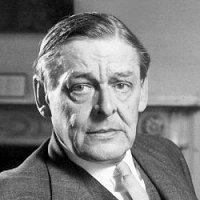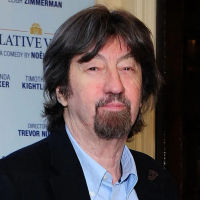| Handout (flat) Handout (folded) Class Script | Return to Index |
Q AND A
Hoe does Old Possum's book of Practical Cats end?
Good guess! The Eliot collection does end with "The Ad-Dressing of Cats," which Andrew Lloyd Webber set as the final number
of the musical. You can read it
here, together
with a recording of Eliot reciting it.
Has the sound problem been solved?
I think so, yes. The strange thing is that it has probably been affecting sound quality in every class up to now, but nobody has
noticed it. I assumed that the volume control on the TV remote basically set the base level which I could then vary with my own
control, but it appears that it opens a separate channel, slightly staggered in time. I will make some more experiments before
next class, but the result will probably be that the sound in the last two classes will seem clearer than before.
Are you really so scornful of Thanksgiving?
Not really. It seemed strange at first, and the experience of eating strange foods around a stranger's table to which one has only been
invited out of kindness was an oddly disconcerting one. But now we are hosts to our own extended family, and have a good time. I even
have a couple of special dishes I always make: Cranberry with Orange, Ginger, and Toasted Almonds, and Root Vegetable Purée. Have
a great Turkey Day yourselves!
VIDEO LINKS
The 1998 film of the London production that I played in class does not seem to be available on YouTube or for sale on DVD; I think I got mine online during COVID, when Andrew Lloyd Webber was making a lot of things available. However, there are individual clips of most of the numbers I showed, issued in a similar impulse under the rubric "The Shows Must Go On." These are at least as good in quality as the clips I showed; their only problem is that they are not connected to one another, and most do not have titles.
With the exception of the first three parts of the Act I Jellicle Ball, I have only listed the scenes that I actually played in class. But you can still see them all, albeit without the connective tissue joining them all together. Simply click on the right arrow (>|) under the video window to move to the next clip, in the order they appear in the show.
Much of the information I gave you comes from the Lloyd Webber interview that I also include below, together with some Eliot readings and a bit of sheer nonsense involving real cats! rb.
| THE SHOWS MUST GO ON | |||
| Jellicle Songs |
part 1 part 2 |
||
| The naming of Cats |
song Victoria's dance |
||
| Invitation to the Jellicle Ball | complete | ||
| Rum Tum Tugger | complete | ||
| Grizabella, the Glamour Cat | complete | ||
| The Jellicle Ball |
part 1
(invitation) part 2 (dance: all) part 3 (dance: Victoria and Plato) part 4 (dance: the part we saw in class) |
||
| Grizabella |
rejection by the other cats Memory (Act I version) |
||
| The Moments of Happiness | Old Deuteronomy's song (not the entire scene) | ||
| Gus, the Theatre Cat |
introduction Gus himself sings |
||
| Skimbleshanks, the Railway Cat |
part 1 part 2 |
||
| Mister Mistoffelees |
part 1 part 2 |
||
| Finale |
Old Deuteronomy's song Memory (Act II version) Journey to the Heaviside Layer The Ad-Dressing of Cats |
||
| MISCELLANEOUS | |||
| Lloyd Webber interview | The genesis of CATS | ||
| TS Eliot reads |
The Naming of Cats
(audio) The Rum Tum Tugger (audio) Gus, the Theatre Cat (audio) |
||
| Cats watching CATS | A fun video! | ||















